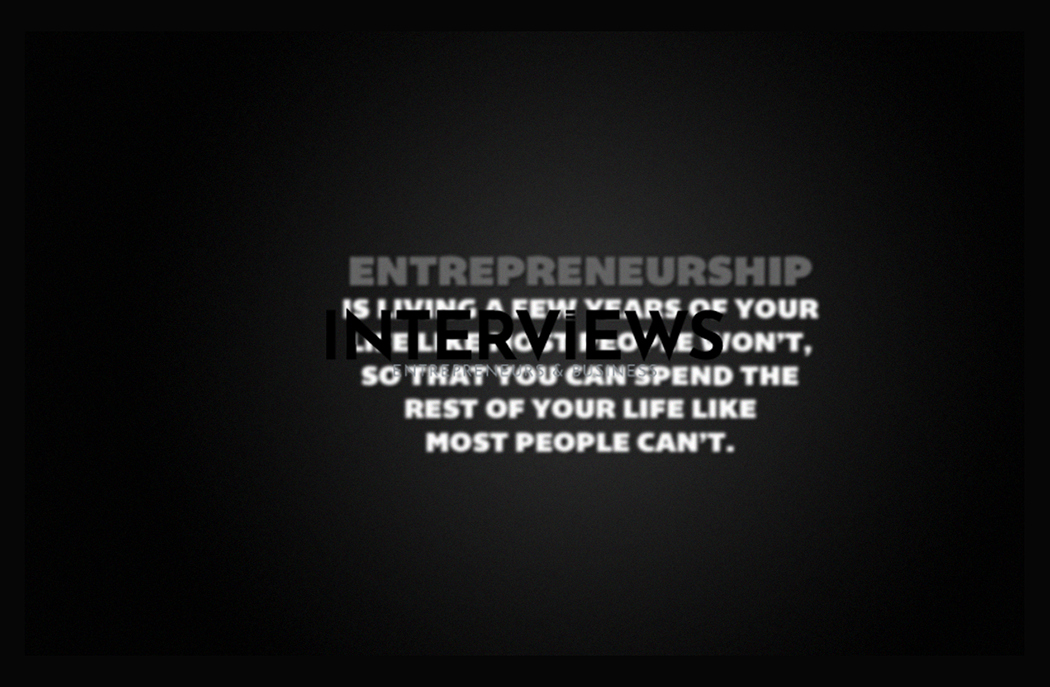Uh, You Wanna Be an Entrepreneur, Right? Let’s Spell It First.
Do you dream of leaving the 9-to-5 job? Amazing! You want to be an entrepreneur. But wait, before you create your vision board and get fancy cards, let’s address a small issue: spelling the word. It’s tricky, and you don’t want to misspell “entrepreneur” on your website. That’s like showing up to a formal event in sweatpants – memorable, but not for the right reasons.
Nailing the Spelling: It’s “Entrepreneur,” Not “Enterpreneur”
Let’s clarify this. The correct spelling is entrepreneur. Not “enterpreneur.” Look for that “r” before the “e” at the end. It’s important. Misplace it, and you may end up selling invisible widgets. In business, details matter. Spelling is your first impression.
Pronunciation Power: Sounding Like You Know Your Stuff
Okay, spelling? Check. Now, how to say it without sounding strange? Pronunciation differs slightly between UK and general English, but we’ve got you.
UK English Vibe
To sound refined, pronounce it “on-truh-pruh-nur.” Emphasize that last syllable. Think of it as elegant and understated, like a fine cup of tea.
General Pronunciation for Everyone Else
If looking for general pronunciation, try “on-truh-pre-nur.” Once more, that last syllable shines. It’s like walking confidently into a boardroom to pitch your big idea. Practice it a few times. Say it in the mirror. Impress your cat. You can do it.
So, What Exactly IS an Entrepreneur? Beyond Just Spelling
Great, you can spell and say it. But what does it truly mean? Being an entrepreneur is more than a flashy title. It’s a whole mindset. Let’s break down what defines an entrepreneur.
- The Need Spotter and Problem Solver: An entrepreneur looks for problems needing solutions. They see market gaps and think, “I can fix that!” Then they follow through.
- The Risk-Taking Daredevil (with a Plan): Starting a business isn’t simple. It comes with risks. Entrepreneurs jump but plan carefully. They see chances where others see threats.
- Not Your Average CEO or Business Owner (Sometimes): A CEO often runs a company. An entrepreneur typically starts it. Think of the entrepreneur as the architect. The CEO is the contractor managing it. Sometimes, the entrepreneur is the CEO at first. However, not all business owners are entrepreneurs. Entrepreneurs are innovators driving change.
Entrepreneurship: It’s a Lifestyle, Not Just a Job
Entrepreneurship is everything. It’s a mindset, a process, a journey. It goes beyond starting a business; it affects how one views life. Think of it as the core software for entrepreneurs.
Types of Entrepreneurship: Pick Your Flavor
Believe it or not, this isn’t a single path. Different forms exist. Here’s a brief overview:
- Small Business Entrepreneurship: Think of your favorite bakery or local bookstore. They serve local needs and often come from personal passions.
- Scalable Startup Entrepreneurship: This embodies the “go big or go home” spirit. Startups focus on rapid growth, driven by innovation and technology.
- Large Company Entrepreneurship (Intrapreneurship): Entrepreneurship thrives in large corporations too! Innovators create new products or strategies from within.
- Social Entrepreneurship: Profit isn’t the only aim here. Social entrepreneurs want to solve societal issues, combining smart business with goodwill.
Entrepreneur Hall of Fame: Names You Might Recognize
Need inspiration? Let’s look at entrepreneurs who’ve spelled it right and changed their industries.
- Elon Musk: The Visionary Multitasker. Is Elon Musk an entrepreneur? Of course! He’s a serial entrepreneur with PayPal, SpaceX, Tesla, Neuralink, X (formerly Twitter), Zip2, SolarCity, OpenAI, The Boring Company – and the list goes on.
- Rihanna: More Than Just Music. Rihanna is more than a singer. Fenty Beauty, Savage X Fenty, Fenty Skin – she’s made a billion-dollar empire focused on inclusivity in several industries.
- Jeff Bezos: From Books to Everything Else. Jeff Bezos revolutionized online book sales. Amazon became everything online because of him.
- Bill Gates: The Software Kingpin. Bill Gates co-founded Microsoft. Their company transformed computing worldwide.
- Mark Zuckerberg: Connecting the World. Love or hate Facebook (now Meta), Mark Zuckerberg scaled it to connect billions. That’s entrepreneurial power.
- Kim Kardashian: The Queen of Branding. Kim Kardashian is a branding expert. SKIMS, KKW Beauty, SKKN by Kim – her brands bring in millions.
- Oprah Winfrey: From Talk Show Host to Media Mogul. Oprah turned a talk show into a massive media empire. She symbolizes resilience and innovation.
The Secret Sauce: Qualities of a Top-Notch Entrepreneur
Want to succeed as an entrepreneur? It takes more than a great idea (though that helps). It’s about having the right qualities. Think of these as your essential skills.
- Risk-Taking: Without risks, there’s no reward. Entrepreneurs embrace calculated risks. They recognize big leaps can lead to big rewards.
- Creativity & Innovation: They think outside the box. Entrepreneurs spot opportunities where others can’t and devise ingenious solutions.
- Passion & Motivation: The entrepreneurial journey is tough. Passion fuels them through challenges. It gets them out of bed on hard days.
- Discipline & Perseverance: Ideas alone aren’t enough. Entrepreneurs set goals and persist despite setbacks.
- Confidence & Self-Belief: You must believe in yourself when others do not. Confidence attracts investors and builds strong teams.
- Adaptability & Flexibility: The business world changes fast. Entrepreneurs adapt strategies as needed. Being rigid leads to disaster.
- Vision & Strategic Thinking: Entrepreneurs aren’t just focused on now. They plan for the future with clear visions and strategic thinking.
- Curiosity & Learning: Lifelong learners thrive. Entrepreneurs are always curious, seeking knowledge to stay ahead.
- Optimism & Resilience: Entrepreneurship is full of ups and downs. Optimism maintains positivity; resilience helps bounce back from failures.
- Communication & Networking: Ideas matter, but effective communication makes them better. Strong skills build relationships.
- attracting talent and selling your vision.
- Leadership & Teamwork: Building a business is rarely solo. Entrepreneurs must inspire teams and create a collaborative environment.
- Integrity & Ethics: Integrity wins in the long run. It builds trust, attracts loyal customers, and establishes a good reputation. Shortcuts may offer quick cash but bring trouble later.
Entrepreneurial Toolkit: Skills You Must Have
Qualities matter, but skills define actions. Entrepreneurs need diverse tools to navigate the business landscape.
- Business Management Skills: The essence of running a business. Budgeting, operations, organization – the essential but less exciting aspects.
- Communication Skills: Talking, writing, listening – this is all communication. It is crucial for pitching, leading teams, and connecting with clients.
- Creative & Critical Thinking Skills: Problem-solving, innovating, and analyzing help entrepreneurs overcome challenges and find unseen opportunities.
- Strategic Thinking Skills: Planning, forecasting, and strategizing involve seeing the overall picture and outlining a plan to get there.
- Branding & Marketing Skills: Communicating your message, building a brand, attracting clients – marketing is vital for any business’s survival.
- Teamwork & Leadership Skills: Inspiring, motivating, delegating, and collaborating are essential for effectively leading a team as you scale any business.
The Entrepreneur’s Mission: More Than Profit
What is the main role of an entrepreneur? It goes beyond profit (although that is important). Entrepreneurs drive progress.
- Opportunity Spotters: They recognize possibilities where others see problems.
- Innovators: They develop new solutions, products, and methods.
- Risk Takers: They venture into the unknown to make ideas real.
- Business Builders: They create and manage businesses, transforming visions into reality.
- Economic Growth Drivers: They create jobs, generate wealth, and promote economic growth.
Decoding Jargon: Entrepreneurial Terms
The business world loves jargon. Here are a few common terms you will encounter in entrepreneurship.
- CEO (Chief Executive Officer): The highest-ranking person in a company, overseeing management. Pronounced “see-ee-oh.” CEOs are often hired, while entrepreneurs are frequently the founders.
- Solopreneur: Someone who builds and runs a business alone. Think of a freelancer on steroids.
- Fempreneur: A female entrepreneur. Some embrace this term; others prefer “entrepreneur.” Women lead the charge in this space.
Money Matters: The Financial Side
Let’s cover the essential aspect: money. Entrepreneurship and finance go hand-in-hand.
- Startup Costs: You must invest money to earn money. Startup costs can vary, but even $10,000 can launch a small online venture. Plan wisely.
- Financial Risks: Cash flow issues are a major concern for entrepreneurs. Running out of cash can lead to bankruptcy. Handle your finances carefully, as your business depends on it.
- How Entrepreneurs Earn: They resolve issues, innovate solutions, and meet unmet needs. Smart entrepreneurs repeat this process for maximum impact.
The Entrepreneurial FAQs: Quick Wisdom
Common questions, quick answers. Here are some frequent inquiries.
- Can anyone be an entrepreneur? Yes! Age, background, or shoe size don’t matter. If you have drive and an idea, start your business.
- Is there an age limit? No. It’s about solving problems and creating value. Skills have no expiration dates.
- What should entrepreneurs wear? Business casual works well. Choose tailored chinos, polo shirts, and stylish loafers. Be professional, but show your style. Comfort is key.
You’ve learned to spell “entrepreneur,” understood its meaning, and grasped what it takes to enter entrepreneurship. Go find a need, solve a problem, and make something great. Just remember to spell it correctly on your business cards.





